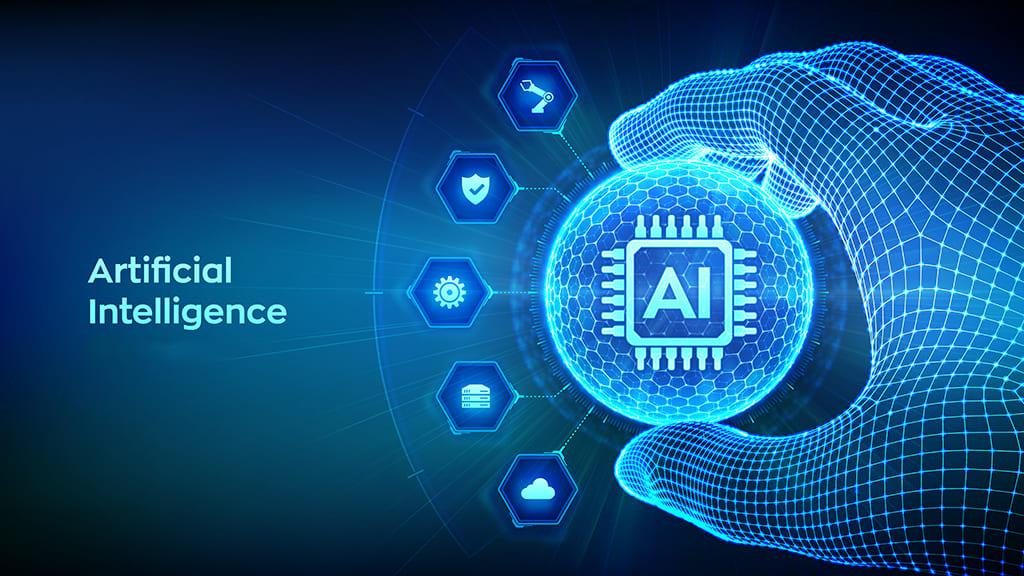Artificial Intelligence (AI) is no longer a concept of the future; it is actively shaping our present and revolutionizing various aspects of daily life. With the integration of deep learning, chatbots, neural networks, and advanced algorithms, AI technology is making our lives more efficient, personalized, and connected. In this blog, we will explore the significant impact of AI and its various applications in everyday life.
What is Artificial Intelligence (AI)?
Artificial intelligence, or AI, is technology that enables computers and machines to simulate human intelligence and problem-solving capabilities.
Understanding Artificial Intelligence
Artificial Intelligence refers to the development of computer systems that can perform tasks typically requiring human intelligence. These tasks include problem-solving, learning, reasoning, and understanding natural language. By leveraging algorithms and massive amounts of data, AI systems can analyze patterns, make predictions, and improve over time.
AI Personal Assistants and Chatbots
One of the most visible applications of AI is in personal assistants and chatbots. Tools like Siri, Alexa, and Google Assistant help users manage daily tasks, set reminders, and control smart home devices through simple voice commands. Similarly, chatbots are enhancing customer service by providing instant responses to inquiries, making interactions more efficient and user-friendly.
Deep Learning and Neural Networks in Healthcare
Deep learning and neural networks are revolutionizing the healthcare industry. These AI technologies enable the analysis of medical images, prediction of disease outbreaks, and personalization of treatment plans. For instance, neural networks can detect early signs of diseases like cancer with high accuracy, while deep learning algorithms help in drug discovery by analyzing complex biological data.
AI in Home Automation
AI home automation has transformed the way we interact with our living spaces. AI-powered devices like smart thermostats, lights, and security systems learn user preferences and operate autonomously. For example, a smart thermostat can adjust temperatures based on occupancy patterns, and AI-driven security cameras can recognize familiar faces and alert homeowners to potential intruders. This level of automation enhances comfort, energy efficiency, and security.
Benefits of Artificial Intelligence
Increased Efficiency and Productivity
One of the primary benefits of AI is its ability to automate repetitive tasks, allowing humans to focus on more complex and creative activities. In industries such as manufacturing, AI-powered robots handle assembly lines, increasing productivity and reducing errors. In offices, AI tools automate data entry and customer service tasks, freeing up employees for strategic work. This increased efficiency leads to significant cost savings and higher output.
Enhanced Personalization
AI applications excel at analyzing user data to provide personalized experiences. Streaming services like Netflix and Spotify use AI algorithms to recommend content based on viewing and listening habits. E-commerce platforms leverage AI to suggest products tailored to individual preferences. This level of personalization enhances customer satisfaction and drives engagement.
Improved Decision Making through Data Mining
AI algorithms can process large datasets quickly and accurately, providing valuable insights that aid decision making. This process, known as data mining, helps businesses uncover patterns and trends that would be impossible to detect manually. In finance, AI models predict market trends and assess investment risks. In marketing, AI analyzes consumer behavior to optimize campaigns and improve targeting. By offering data-driven insights, AI helps businesses make informed decisions and stay competitive.
The Future of AI in Everyday Life
As AI technology continues to advance, its integration into everyday life is expected to deepen. Emerging trends include the development of smart cities where AI manages traffic flow, energy consumption, and public safety. In education, AI-powered tutors provide personalized learning experiences, catering to individual student needs. In healthcare, AI is poised to revolutionize genomics and personalized medicine, leading to more effective treatments.
Ethical Considerations
While the benefits of AI are immense, it is essential to address ethical concerns. Issues such as data privacy, security, and the potential for job displacement must be carefully managed. Ensuring that AI is developed and implemented responsibly involves creating robust regulatory frameworks and promoting transparency in AI algorithms. It is crucial to balance innovation with ethical considerations to foster trust in AI systems.
Embracing the AI Revolution
Artificial Intelligence is transforming everyday life by enhancing efficiency, personalization, and decision making. From deep learning and neural networks in healthcare to chatbots and AI home automation, the applications of AI are vast and varied. As we continue to embrace AI technology, it is important to remain mindful of ethical considerations and ensure that AI benefits all of society. The future of AI holds immense potential, and by leveraging its capabilities, we can create a smarter, more efficient world.



